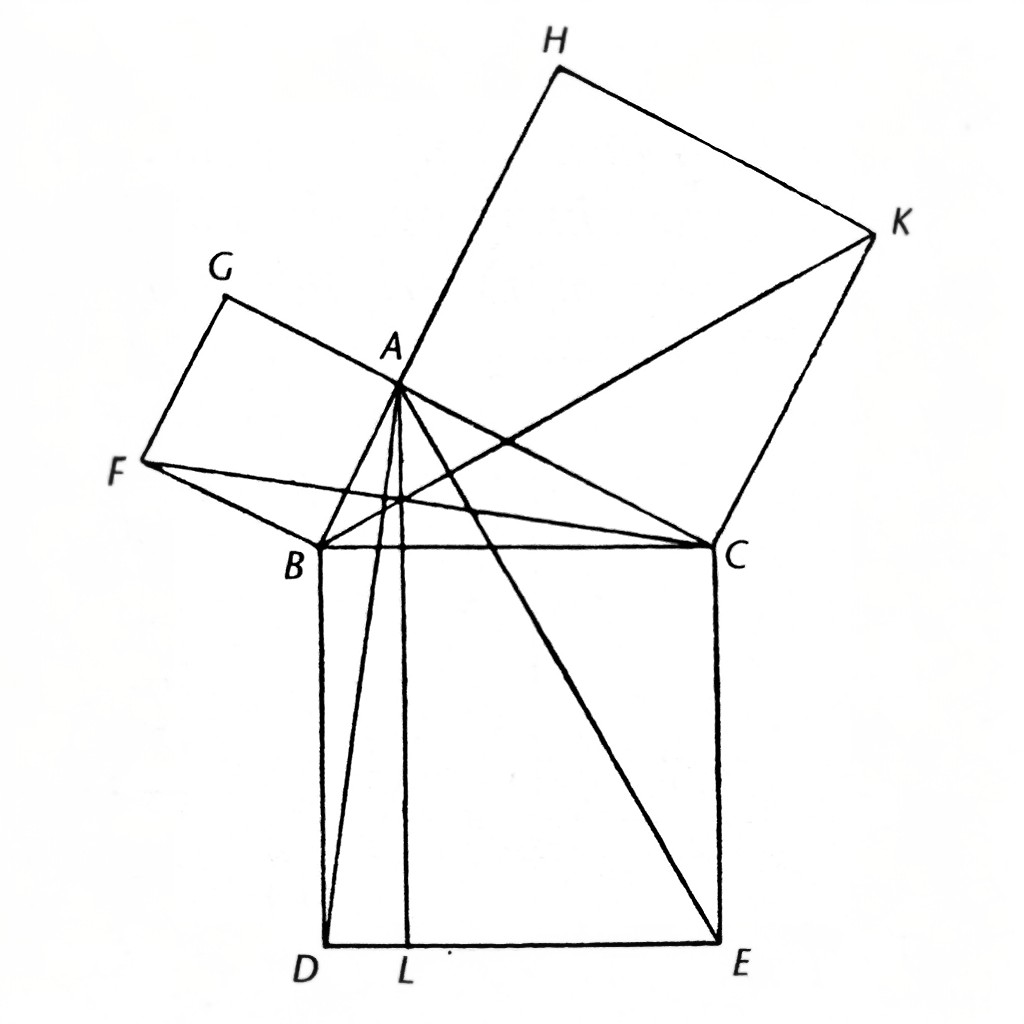I’m in a bit of a productivity rut and whilst I suspect the issue is mainly between the keyboard and chair I’m also interested in what (FOSS) tools there are that people find effective.
One of my issues at the moment is cross managing different workstreams particularly with personal projects which are more in the “if I have time category”.
I’m interested in anything that helps manage time or limit distractions or anything that makes it easier to keep track of progress/next steps for project when there may be a bit of a time gap between.
Anyone here have any experience with Anytype?
I tried it, but I will stick to Obsidian
One of my issues at the moment is cross managing different workstreams particularly with personal projects which are more in the “if I have time category”.
Literally what I use virtual desktops to solve
So you keep a project open in the Virtual Desktop and then boot it up when you are working on it?
They’re not talking about a virtual machine. There is no “booting up”.
You can have multiple desktops in linux, I personally use three, which you can switch between using a keyboard shortcut (or widget/ taskbar item).
It’s kinda like turning one computer into multiple computers that you hop between on demand.
I have one for gaming and entertainment, one for work, and a third for personal projects.
How does resource management work for desktops? Is the computer running all of the processes in the background as though they are just minimized?
Yes. Or out of focus. If you have one monitor, three virtual desktops would be like having three monitors. Looking at a different one, doesn’t stop anything running on another. You can also “send” a window on one desktop to another, equivalent to dragging a window from one monitor to another when using two or more.
KDE Activities is a similar feature, but it can actually suspend everything running in a certain “activity” when you switch to another, if that’s something you want.
It’s essentially the same as having more monitors, except you can only see the active ones. Nothing changes except what your displays are showing.
Virtual desktop =/= virtual machine
I think gnome calles them workspaces. This article is old and gnome-specific, but it gives you a good idea of what they are.
https://www.maketecheasier.com/how-to-work-with-workspaces-gnome/
That and using multiple instances of the browser instead of one instance with many tabs helped me a lot. If i have to switch tasks i go to a new workspace and only open the software related to that task there. Once I’m done i just close everything in the workspace and move back to the previous one that is the same way it was before i switch.
distrobox too
Is it possible to “save” those sessions between reboots? That would be awesome.
I do with KWin rules. It’s not elegant but it doesn’t require coding
Kde activities should suit this well since it’s integrated to the level of the file viewer.
selfhosted searchengine . i see zero reason not to.
Whoogle (through Tor)? ;)
Or searx??
i was thinking more of a narrow information retrieval system. as opposed to doing random exploration and discovery.
Please elaborate, I’ve been interested in this for awhile - what do you use/recommend for someone who’s new?
https://en.wikipedia.org/wiki/Apache_Lucene
there are many other options, also.
I’m certain you can think of a reason not to if you really try.
As a programmer most of my utilities are CLI oriented.
zsh
fzf (integrated into zsh, improves reverse search, killing processes and more)
zoxide - for quicker navigation into folders I visit often
Other programs I use from time to time:jq,btop,bat.Flameshot - best screenshotting tool for linux (and also windows)
Redshift/Gammashift - blue light filter
ddccontrol - controlling monitor brightness and contrast without having to fiddle with buttonsLast but not least my Awesome WM (tiling) config - makes working with multiple windows/desktops so easy.
+1 for these that I also use : fzf flameshot and redshift !
Ooh flames hot does look interesting! Thanks, I’ll check it out
Make the print screen button call
flameshot guiand you’re golden
Could you share your config for Awesome? I’m toying with the idea of moving to a tiling WM.
I don’t really have it ready to publicize but it’s based on powerarrow-dark from awesome-copycats github repo (I have mainly removed things I don’t use and added some more mappings like media keys etc).
emacs org-mode
I’ve recently started replacing most of my shell usage with org mode and babel, along with GitHub copilot and similar LLM backed tools it’s like autocomplete on steroids
Just Emacs in general
I worry I’m not “hardcore” enough for emacs (I have tried in the past and now mostly use Vim). I will give it a try though as quite a few people recommend here!
It takes a little bit of getting used to, but I found once limited myself to a few useful features I really started using it every day. For the most part I organize myself inside of Jira, but for tasks that I am currently thinking about I put them in a org-mode document. I have a few minor customizations, use a few hot keys, and that’s it.
You could try spacemacs (what I use) or doom emacs. Both have vi-like keybindings as a default and are slightly easier to get going with than vanilla emacs. On the other hand, especially with spacemacs, there’s more to learn than vanilla emacs and more that can go wrong.
This is the way.
Nothing comes even close. I just wish there was a distributed / mobile-enabled way to use org-mode. I guess there exists some project, but running full emacs org-mode mobile is hardly usable.
I got acceptable results with org-roam cooperating with logseq. It took some fiddling with org IDs, config and a bit of elisp, but it’s stable enough for me.
How did you handle note interlinking?
deleted by creator
True. And I wanted to know how they keep that in tandem with org mode. Because the wiki style links logseq uses don’t seem to work with other applications
I forced logseq to use relative file links and skipped backlinking in org-roam. However, it looks like logseq now supports org-id links with backlinking. I might need another script to convert :).
OBSIDIAN!
Obsidian is not open source.
not really open source, but all of your data is safe as markdown files. While normally prefer FOSS applications, I make an acception for Obsidian, because nothing really matches it
Not even logseq?
In my experience, nope. I tried so hard to use Logseq, but I had massive issues with speed, stability, and database corruption.
Really I think the root of the issue is their database. The database causes so many problems and makes their synchronization methods dirty hacks at best.
Sway really sped things up for me. Also using ble.sh helps with bash. Then custom scripts and aliases in bashrc.
FZF in Bash. For those wondering why Ctrl+R does not work in Terminal, https://web.archive.org/web/20231202002540/https://unix.stackexchange.com/questions/665689/fzf-ctlr-r-not-triggering-history-search-on-command-line
And to avoid all the web browser player BS, use yt-dlp for any video link or worthwhile playlist. I just search and fetch video links from Invidious, or read comments on videos, so it ends up with practically zero bandwidth load on instance owners.
Avoiding going on yt is definitely a plus. I am trying to move more to active choice of music rather than just what the algorithm is pushing. Obviously that requires upfront work but I think it’s worth it.
You may find yourself better suited with a throwaway free Spotify account, letting the algorithm suggest bands and songs based on your taste, and just noting down all of them. Spotify also allows exporting your account’s data, which includes music preferences, so that can work well. I am doing the same because it is just not feasible to discover by yourself.
I send links from my browser to freetube, which is fantastic.
Try out a tiling wm (i use i3/sway) they are much easier to focus in than a regular de
It’s on the list to try. I briefly tried i3 but couldn’t get on with it. Though that was a bad time to try change as there was a lot of deadlines and I didn’t really have the time to learn. I have a bit more time so I’m going to try again.
python i automated a ton of repeatative and boring tasks. made my work life super easy. made some tools for my manager to harvest all drawings for a user specified product. sky is the limit. well until you type import cosmos /s
@zerakith thunderbird and obsdian I know it’s not foss but it’s really good. As well as vs codium
I use emacs, Denote, and markdown-mode to keep a loose Zettlekasten archive of notes.
A combination of different.
For brainstorming Logseq is great, for tasks I use CalDAV in combination with Thunderbird and JTX Board (Android) a lot.
Obsidian flatpak with network disabled
Not FOSS unfortunately.
Therefore disable networking…
Useful, I’m open to non-FOSS if I really have to and no networking helps.
Nextcloud Calendar is where I’m blocking out my time. I use a proprietary task app with a Linux client because tasks.org/former Astrid/nextcloud tasks isn’t quite there yet… for me. If I was creating a system to keep me on track today, I would center the whole thing on Nextcloud. The one thing I despise about nextcloud is how it handled locales and formats. There is no easy way to move to YYYY-MM-DD and HH-DD without messing up other stuff like day of the week captions language. The thing I love about nextcloud is how it doesn’t spam you with garbage recommendations and clutter and such like Outlook.



















